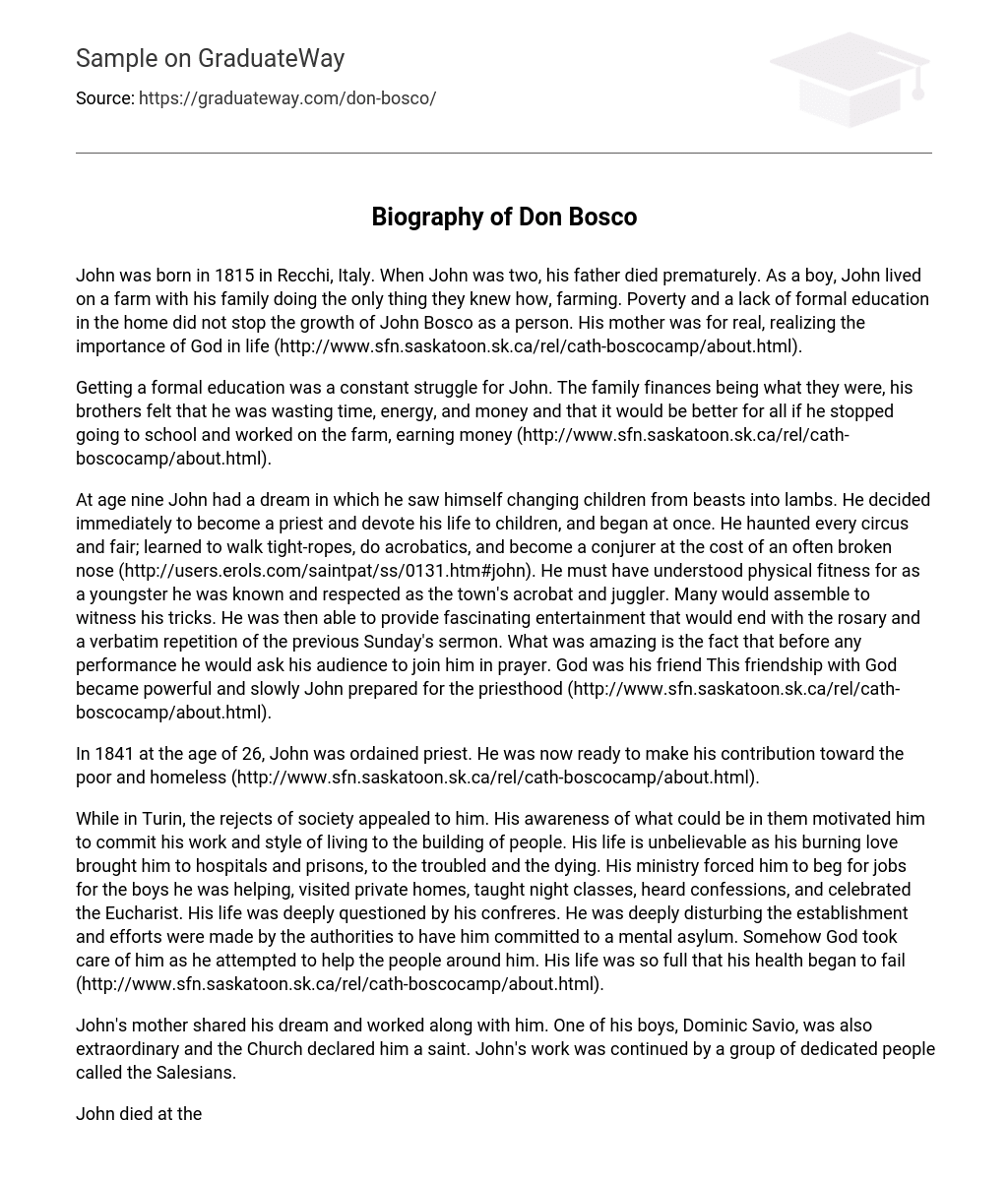Despite being born in poverty and losing his father at a young age, John Bosco managed to grow up on a farm with his family and work as a farmer (source: http://www.sfn.saskatoon.sk.ca/rel/cath-boscocamp/about.html). However, his character continued to develop and flourish thanks to the significant role played by his mother in instilling the importance of God in his life.
John encountered various challenges in acquiring a good education. Given the family’s financial circumstances, his siblings believed it would be more beneficial for him to discontinue attending school and instead assist with agricultural tasks to generate income (source).
John, at the age of nine, had a significant dream where he saw himself transforming beastly creatures into gentle lambs. This powerful vision inspired him to become a priest and work with children. To pursue this calling, John immersed himself in circuses and fairs, diligently learning various skills like tight-rope walking, acrobatics, and magic tricks.
Despite facing challenges such as broken noses along the way, John persevered and gained fame as the town’s talented acrobat and juggler. Crowds would gather just to witness his impressive tricks that always concluded with reciting the rosary and faithfully repeating Sunday’s sermon word-for-word.
What set John apart was his invitation to the audience to join him in prayer before each performance – a clear display of his profound friendship with God. Over time, this spiritual connection grew stronger as John prepared for his future vocation as a priest.
John was ordained as a priest at the age of 26 in 1841, with the intention of assisting the impoverished and homeless (source: http://www.sfn.saskatoon.sk.ca/rel/cath-boscocamp/about.html).
During his time in Turin, he provided solace to the outcasts of society. He dedicated his work and way of life to empowering individuals, recognizing their potential. His achievements were remarkable – he visited hospitals and prisons, offering support to the troubled and dying. His ministry involved seeking employment opportunities for the boys he helped, visiting private residences, conducting nighttime classes, hearing confessions, and administering the Eucharist. Despite skepticism from his fellow brethren, he defied the status quo which unsettled those in power. Authorities attempted to have him institutionalized but divine intervention protected him as he assisted those around him. However, such a busy existence eventually took a toll on his health (source: http://www.sfn.saskatoon.sk.ca/rel/cath-boscocamp/about.html).
John’s mother not only supported his dream but also actively participated in it. His son, Dominic Savio, was also remarkable and the Church honored him as a saint. The Salesians, a committed group of people, continued John’s mission.
John Bosco, who passed away in 1888 at the age of 73, devoted his life to serving others. source He was renowned for his strong moral character and unyielding dedication to finding the truth. In his relentless pursuit, he discovered that embracing one’s youth is essential for a satisfying life. The Church recognizes John Bosco as an exemplar of virtue and someone who formed deep relationships with both individuals and God. John always acknowledged that his goodness came from God, which was evident in how he interacted with others. Those fortunate enough to have encountered him felt a profound sense of vitality and zest for life, viewing it as a special blessing from God. Thus, believers refer to him as St. John Bosco.source





